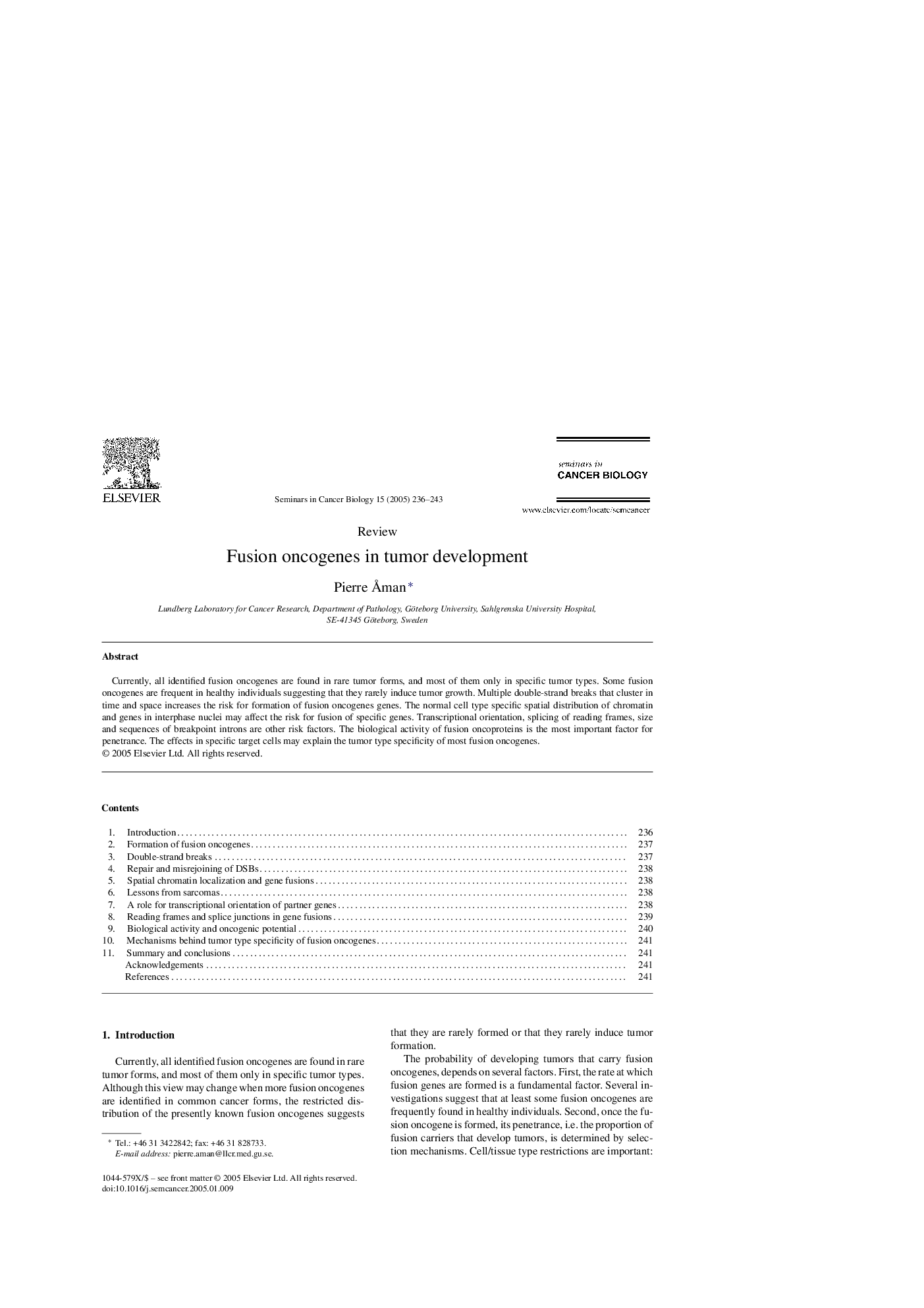| Article ID | Journal | Published Year | Pages | File Type |
|---|---|---|---|---|
| 10845743 | Seminars in Cancer Biology | 2005 | 8 Pages |
Abstract
Currently, all identified fusion oncogenes are found in rare tumor forms, and most of them only in specific tumor types. Some fusion oncogenes are frequent in healthy individuals suggesting that they rarely induce tumor growth. Multiple double-strand breaks that cluster in time and space increases the risk for formation of fusion oncogenes genes. The normal cell type specific spatial distribution of chromatin and genes in interphase nuclei may affect the risk for fusion of specific genes. Transcriptional orientation, splicing of reading frames, size and sequences of breakpoint introns are other risk factors. The biological activity of fusion oncoproteins is the most important factor for penetrance. The effects in specific target cells may explain the tumor type specificity of most fusion oncogenes.
Related Topics
Life Sciences
Biochemistry, Genetics and Molecular Biology
Biochemistry
Authors
Pierre Ã
man,
